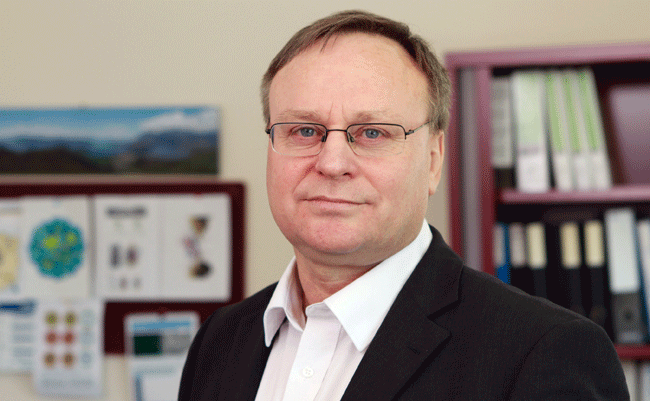Tuesday 17 September 2019 9:02pm

One of the big winner's in today's Endeavour Fund announcement, the Dean of the School of Biomedical Sciences, Professor Vernon Ward who received $13,525,451 over five years for an international collaborative project aiming to develop antiviral agents.
University of Otago scientists have received their largest ever haul of funding from the Government’s Endeavour Fund with almost $38.5 million this year.
Three research programmes have received $29.5 million, while a further nine “Smart Ideas” projects, which catalyse and test promising innovative research ideas with high potential for benefits, have received $9 million.
Research, Science and Innovation Minister Megan Woods announced this morning that the Government is investing $241 million in leading research projects that will help find new ways to address long-term issues like increasing renewable energy sources, growing knowledge-intensive industries and tackling New Zealand’s social issues.
The fund received 414 applications with 71 approved for funding.
University of Otago research leader Professor Richard Blaikie says he is exceptionally pleased to see these results in the largest national research grant round.
“This is the most successful year we have had at Otago for Endeavour Fund research grants.”
Dean of the School of Biomedical Sciences, Professor Vernon Ward, received the largest grant among Otago researchers with $13,525,451 over five years for an international collaborative project aiming to develop antiviral agents.
Professor Merata Kawharu (Ngāti Whatua, Ngāpuhi) from the Centre for Sustainability, has been awarded $7,248,016 over five years for an initiative aimed at empowering Māori communities to respond to climate change.
Microbiologist Professor Greg Cook and Research Fellow Dr Scott Ferguson are the other big winners with a five-year $8,709,022 grant to develop new antimicrobials to treat animals.
Successful “Smart Ideas” projects are:
Diagnosis by light: An endoscopic probe for biopsy-free diagnosis of gastrointestinal diseases
Dr Sara Miller (Department of Chemistry)
$999,999, three yearsCultivating resilient marine forests to rebuild productive coastal ecosystems
Associate Professor Chris Hepburn (Department of Marine Science)
$999,999, three yearsEnabling possum fertility control and eradication
Dr Tim Hore (Department of Anatomy)
$999,969, three yearsModelling the cracks, chills and feedbacks that will control Auckland’s next eruption
Professor James White (Department of Geology)
$999,999, three yearsGenerating non-heading ryegrass
Associate Professor Richard Macknight (Department of Biochemistry)
$999,999, three yearsComputational platform for phylogenetic analysis of somatic evolution
Dr Alex Gavryushkin (Department of Computer Science)
$999,999, three yearsPhage-inspired custom antimicrobials to target bacterial pathogens
Associate Professor Peter Fineran (Department of Microbiology and Immunology)
$999,999, three yearsQuantifying environmental resources through high-resolution, automated, satellite mapping of landscape change
Dr Pascal Sirguey (School of Surveying)
$999,999, three yearsContact-free sensing of high voltages using a laser electrometer
Dr Amita Deb (Department of Physics)
$999,999, three years
Professor Blaikie says the research supported comes from a wide range of fields across the University and he is pleased to see a mix of experienced and early-career researchers being supported.
“The strength of kaupapa Māori research at Otago is also evident in these results with a programme focused on climate change adaption and a project looking at marine environment remediation both intimately engaged with the hapu and iwi that have the most to gain from the research.”
Further information about the successful Otago researchers can be found here, while a full list of successful projects is available here.
